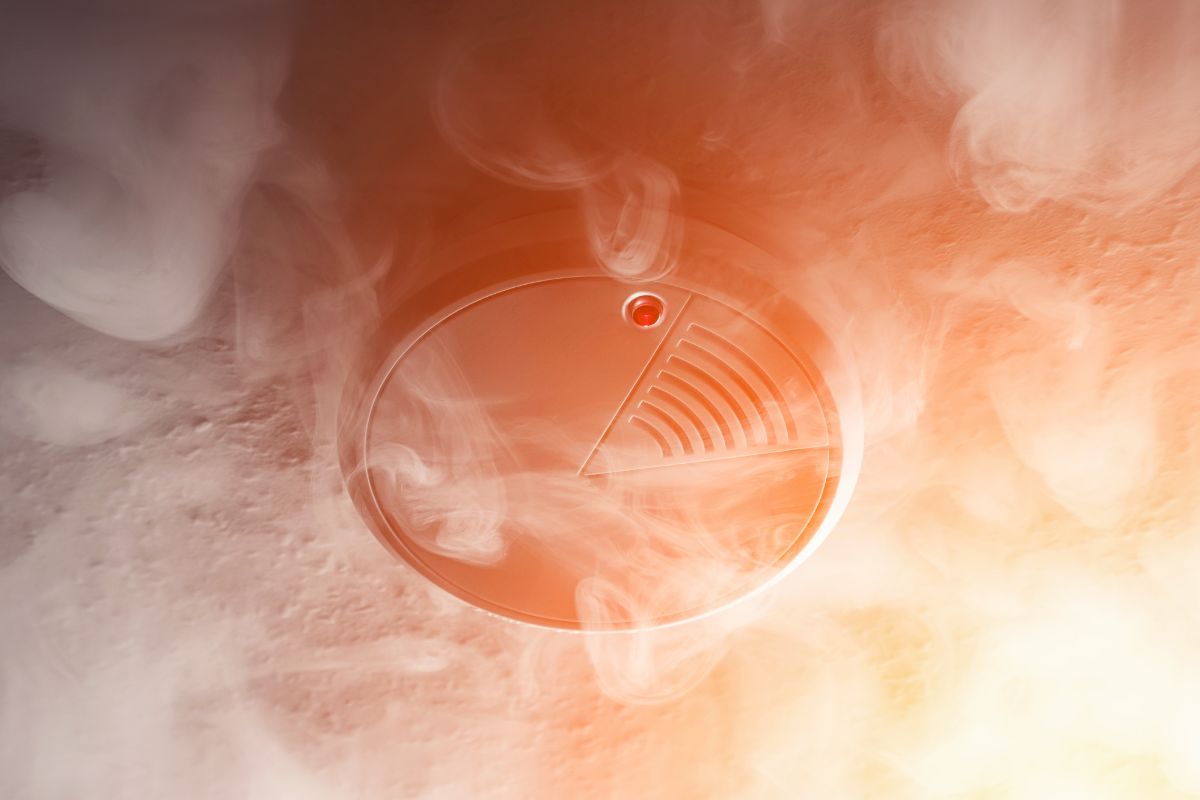7 Ways To Protect Yourself From a House Fire


As Fire Prevention Week approaches each October, it serves as a poignant reminder of the devastating impact fires can have on our lives and homes. Established to commemorate the Great Chicago Fire of 1871, this week prompts us to take proactive steps to ensure the safety of ourselves and our loved ones.
How To Prevent and Protect Yourself from a House Fire
1. Maintain Working Smoke Detectors
Regularly check your smoke detectors to ensure they are functioning properly. Treat this task as a monthly appointment on your calendar, as a working smoke alarm can reduce the risk of dying in a fire by half.
2. Develop and Practice a Family Escape Plan
Having an escape plan is essential, but it’s equally important to practice it regularly. Survival in a fire is significantly more likely if your family’s actions during an emergency are rehearsed and deliberate.
3. Exercise Caution When Cooking
Cooking is a leading cause of home fires and burns. Never leave the stove unattended, and keep a fire extinguisher nearby. Educate your children on kitchen safety practices, and promptly call 911 in case of fire or injury.
4. Avoid Smoking Indoors
Smoking indoors poses significant risks to your health and home. Statistics show that smoking materials cause thousands of home structure fires annually, resulting in numerous fatalities, injuries, and property damage.
5. Practice Safe Electrical Habits
Electrical fires account for a significant portion of home fires. Have your electrical wiring inspected by a professional, and ensure any new property you purchase has up-to-date electrical work. Avoid overloading outlets and using extension cords for prolonged periods.
6. Monitor Heat Sources
Keep heat sources at least three feet away from flammable objects and walls. Regularly clean chimneys, and use sturdy screens around fireplaces to prevent sparks from escaping. Exercise caution with portable heaters, as they contribute to a high percentage of home heating deaths.
7. Burn Candles Safely
Burn candles under close supervision, and never leave them unattended. Keep candles away from flammable materials and walls, and extinguish them before going to sleep.
Essential Fire Safety Tips
1. Understanding the Urgency
Fires can turn deadly within minutes. Recognize the speed and severity of a fire’s progression to safeguard yourself and your property effectively.
2. Fire Characteristics
Fire is fast, hot, dark, and deadly. Within seconds, flames can escalate, temperatures can soar, and thick smoke can engulf a space, posing lethal risks.
3. Pre-Fire Preparation
Prioritize fire safety by securing insurance, creating digital backups of vital documents, and maintaining fire extinguishers in key areas of your home.
4. During a Fire
Remain calm and act swiftly. Stay low to the ground, test doors for heat before opening, and follow designated escape routes. Contact emergency services immediately if assistance is needed.
5. Post-Fire Procedures
Seek assistance from disaster relief services if necessary. Conduct thorough property inspections, document damages, and communicate with relevant authorities and insurers.
Personal Injury Attorneys in Yakima
By integrating these fire prevention practices into your regular home maintenance routine, you can significantly reduce the risk of a house fire and protect yourself and your loved ones from potential harm. Remember, proactive measures today can prevent devastating consequences tomorrow.
Send us a message or give us a phone call at 800-927-2845 to get started now.